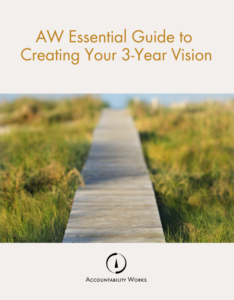We often attribute fatigue, exhaustion, and burnout to excessive work hours and workaholism, but I’ve recently come to realize that these issues are also closely linked to overstimulation.
The Nervous System
Our nervous system constantly oscillates between an activated state (sympathetic) and a relaxed state (parasympathetic). Over the course of several decades, I’ve spent more time in overstimulated (fight or flight) and subsequently been under-rested (rest and digest) for extended periods. This resulted in phases of fatigue, ranging from mild to severe, until I eventually found myself teetering on the brink of exhaustion and burnout. It was during this time that I developed a nervous system disorder, which manifested as symptoms like vertigo, dizziness, numbness, and tinnitus.
Potent remedy
Thankfully, modern medicine became my saving grace. Approximately a year ago, I began a medication regimen that alleviated most of my symptoms, allowing me to regain about 90% of my normal functionality. It also provided me with the opportunity to explore the root causes of my condition and embark on a journey of healing.
For me, the most potent remedy has been sleep. In the depths of my symptoms, I could sleep for up to 12 hours a day. However, after gaining relief from my symptoms, my sleep patterns returned to a more conventional 7 to 7.5 hours per night. I now understand that dipping below this threshold can trigger a resurgence of my symptoms.
Three simple practices
Additionally, I’ve integrated three simple practices to facilitate the transition into a parasympathetic state. I find the first two more difficult so I commit to them as part of my personal foundation and having that accountability has helped me because I’m very resistant to laying down in the afternoon (I’ve got to much to do!) or jump in the ocean (it’s too cold!).
- Taking a 20-minute nap after lunch several times a week
- Embracing a cold plunge in the ocean
- Extending the ratio of outbreaths to inbreaths (2 counts in, 4 counts out, or 4 counts in, 8 counts out)
Over the past few months, I immersed myself in research on focus, which unexpectedly led me to realize that chronic overstimulation, which had detrimentally impacted my nervous system, is not an isolated issue. In our modern lives, we all grapple with chronic overstimulation as we navigate an array of stressors such as emails, texts, social networks, 24/7 news cycles, political strife, economic uncertainties, and various forms of inequality.
Despite not consciously seeking a “fight or flight” state, I recognized that this was the physiological response that I, and many others, were experiencing. Just as I needed to intentionally soothe my nervous system, I also had to protect it from the constant onslaught of overstimulation. I admit that this has been the most challenging part of my journey, as it forced me to confront my own addictions and cravings.
Strategies to avoid overstimulation
Here are some of the strategies I’ve implemented:
- Set app limits for all news and social media usage.
- Prioritize reading a physical book before bedtime to promote peaceful sleep.
- Drastically reduce or eliminate alcohol consumption, as it significantly impacts sleep quality.
- Embace solitude, particularly in nature, and intentionally eliminate external noise, such as music, books, or podcasts.
I’ve come to understand that fatigue is a warning sign, not something to be disregarded or trivialized. Exhaustion signifies a deeper strain, and burnout is a breaking point. We need not reach that breaking point or fall into a state of disease. Instead, we can choose to rest, listen to our bodies, and be deliberate in controlling the stimuli we expose ourselves to. This conscious approach doesn’t make you less productive or engaged. Rested individuals can tap into their creativity, make sound decisions, and engage more deeply when they are not constantly teetering on the brink of anxiety. It’s a healthier and more sustainable way to live.
Tune-in
I encourage you to tune into your own natural cycles of heightened alertness and relaxed awareness. Notice when you feel anxious or restless. Think about what came before. Did you hear something disturbing or have a difficult interaction? What can you do to settle your nervous system? It could be a simple as doing a few breathing exercises.



